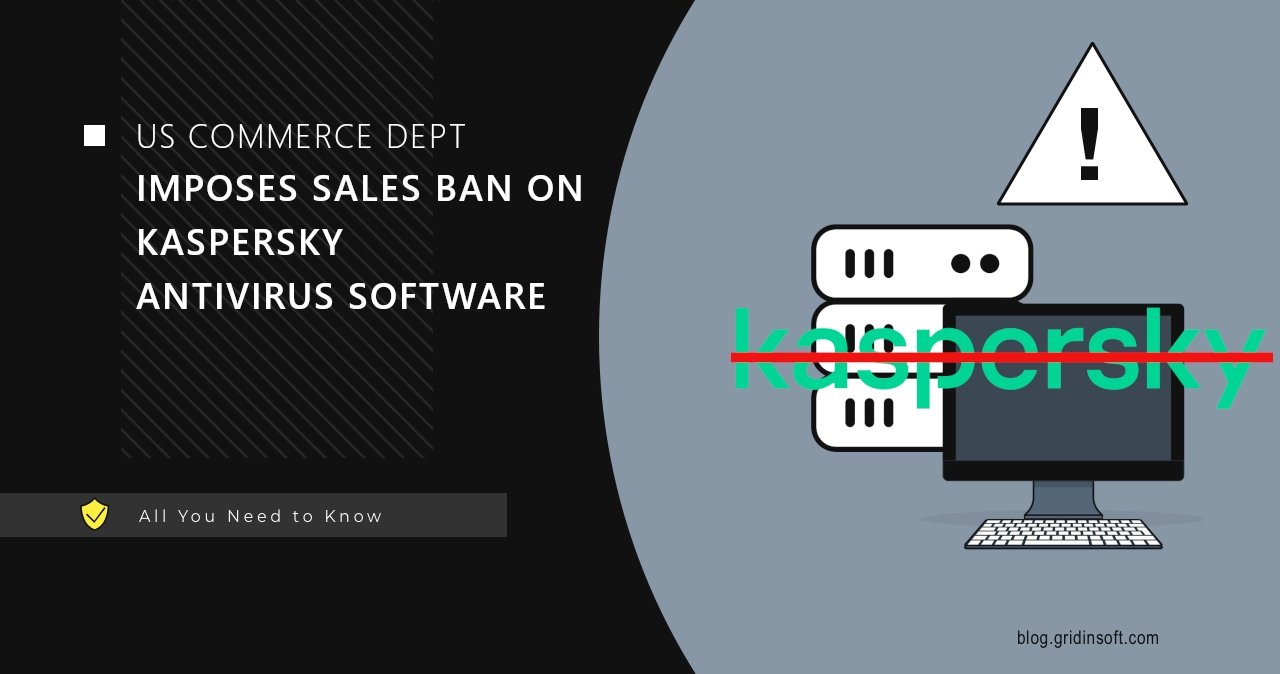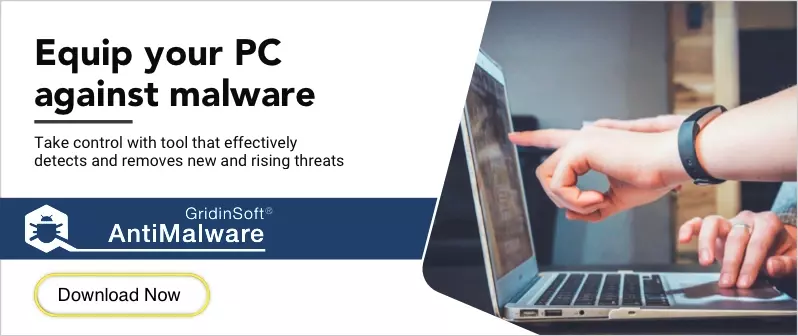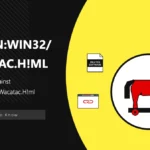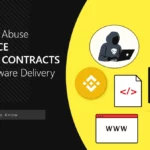On June 20, 2024, the Biden administration implemented a complete ban on sales of Kaspersky software. The company has been amidst data security worries since 2017. Now, after more than seven years of Kaspersky ban in govt organizations, the software is getting banned completely.
US Implements Ban on Kaspersky Software
On Thursday, June 20, U.S. Commerce Department announced imposing a sales ban for all Kaspersky products, to all types of customers. That is in fact a continuation of a long-time talk regarding safety of using such software, specifically data safety. In 2017, following the accusations of Kaspersky collecting sensitive data from government organizations, the US restricted the latter from using it. In October 2023, a similar story happened in Canada, when their government prohibited using Kaspersky and WeChat in government organizations under concerns of data collection.
But ok, Kaspersky was once caught collecting data from the US Department of State, it is hard to doubt. That was, in fact, the primary reason for the 2017 ban. But why would they ban the sales for retail consumers, too? The answer is – things are the same as with the TikTok ban. Antivirus software or organization-scale security solutions can access pretty much any data on the device, collect telemetry and other valuable information.
Considering the Russian laws, even “normal” data, needed for the software to operate and develop correctly may be accessed by law enforcement at any time. And considering the current political tensions, gifting this data to security or intelligence services of a rivaling country is not the best idea.
Obviously, Kasperky denies all the accusations, same as they did in 2017. Though, what happened back in the days is hard to doubt, same as the current laws I’ve just mentioned. Geopolitical reasons may have a place here, but it is hardly doubtful that the company itself has some skeletons in the closet.
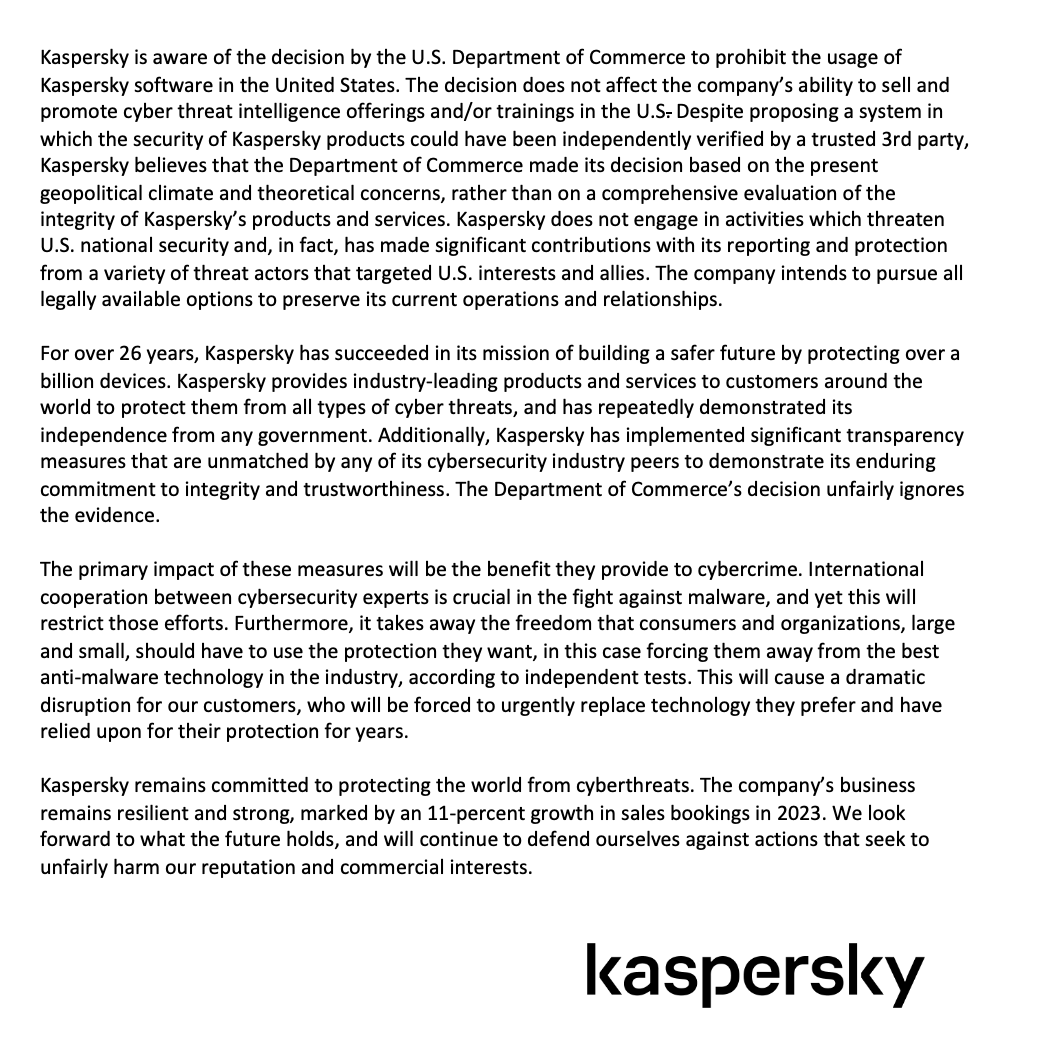
What if I’ve already bought Kaspersky?
The ban is not likely to have a retroactive effect, and overall – if the software is already bought and installed, no one can really remove it from the system unless you do so. And overall, even the officials say that the customers’ are out of scope of any accusation in that case. This prohibition touches on marketing and updating the software (after September 2024), which is completely on Kaspersky’s side.
One major concern that has obviously risen after the ban implementation is that the software has quite a wide usage across the US. It is particularly popular organizations and corporations, as EDR/XDR applications. Once the updates will stop in September, the security tool will be as effective as a scarecrow. And, as it usually happens with corporations, seeking for the alternative may take some time. 3 months of a delay should in theory be enough to find another cybersecurity vendor, but that is only in theory.
For users, switching to a new antivirus or antimalware option is much easier, especially considering the number of offers from security vendors that do not have espionage accusations. Consider trying out GridinSoft Anti-Malware: its user-friendly interface will make the transition much easier, and a multi-component detection system won’t let the malware inside. And it is not ignorant towards Russian malware, too!

